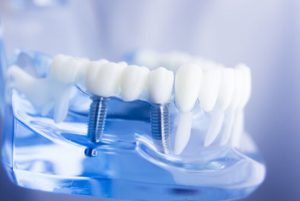The loss of natural teeth can be a daunting experience, but with modern advancements in cosmetic dentistry, the solution lies within reach. Dental implants have emerged as a leading tooth replacement option, restoring smiles across the globe. But how much for dental implants? This is a question many ask when exploring options for missing teeth. From understanding the dental implant procedure to the intricate details of dental implant cost, this guide will delve into every aspect of this dental treatment. Whether you’re considering a single tooth implant or full mouth dental implant, knowing the cost of implants, the benefits of dental bridges and the intricacies of dental implant surgery can aid in making informed decisions for your oral health.
Understanding Dental Implants
Dental implants have emerged as the vanguard of modern tooth replacement solutions, offering a permanent alternative for missing teeth. When diving into implant dentistry, the primary query is dental implant cost. To understand dental implants and their costs, it’s pivotal to first grasp their definition. A dental implant is a titanium post surgically positioned into the jaw bone, serving as a root for the replacement tooth. This dental treatment offers numerous advantages over traditional tooth replacements like dental bridges.
Placing dental implants involves intricate dental surgery, often necessitating bone grafting if the jaw bone isn’t thick enough or is too soft. While the dental implant cost might be a concern for many, comparing the longevity and benefits of implants to other methods is essential. A single-tooth implant cost, for instance, might be more than a bridge, but the implant’s ability to protect remaining natural teeth and promote oral health can justify the price. Tooth implants differ from other dental prosthetics mainly in their permanence, need for a surgical procedure, and interaction with the jaw bone, ensuring they don’t slide or shift in the mouth.
Benefits of Dental Implants
Dental implants have emerged as the gold standard for tooth replacement in cosmetic dentistry. The initial query for many is about dental implant cost. The unparalleled benefits justify the dental implant cost for countless individuals.
Long-lasting: One of the most significant advantages of dental implants over traditional dental treatments like bridges or dentures is their durability. When properly cared for, these posts can last a lifetime. The dental implant procedure, though intricate, ensures the implant is deeply anchored into the jaw bone, offering a sturdy foundation for the replacement tooth.
Aesthetically Pleasing: Dental implants closely resemble natural teeth, making them nearly indistinguishable from the patient’s remaining natural teeth. Whether a single tooth implant or full mouth dental implant, the result is seamless integration, providing a natural and confident smile.
Jawbone Preservation: Missing teeth can lead to jaw bone deterioration over time—however, dental implants help preserve jaw bone. Like a natural tooth root, the implant stimulates the bone, preventing bone loss common with dental bridges or dentures.
Improved Functionality: Dental implants restore nearly the full function of missing teeth. From biting into an apple to speaking clearly without the worry of slipping dentures, dental implant treatment offers unparalleled functionality.
The cost of implants is a significant investment. Still, when considering the combination of aesthetics, functionality, and longevity, it’s evident why they are at the forefront of major dental treatments today.
The Dental Implant Process
Dental implants have revolutionised tooth replacement, offering a robust and permanent solution for missing teeth. While the question, “what is the dental implant cost?” is often the initial inquiry, understanding the comprehensive dental implant procedure provides a clearer perspective on the value and the dental implant costs. Here’s a step-by-step breakdown of the process:
 Consultation and Planning: The journey begins with a thorough consultation. Dentists assess the health of your jaw bone, oral health, and any remaining natural teeth. This stage may involve X-rays and 3D imaging to ensure precise planning. Your dental treatment history, including instances of gum disease or previous dental procedures, will be reviewed.
Consultation and Planning: The journey begins with a thorough consultation. Dentists assess the health of your jaw bone, oral health, and any remaining natural teeth. This stage may involve X-rays and 3D imaging to ensure precise planning. Your dental treatment history, including instances of gum disease or previous dental procedures, will be reviewed.
Implant Placement Procedure: Often referred to as dental implant surgery, this step involves placing the dental implant into the jaw bone. In instances where the jaw bone is inadequate, a bone graft might be necessary. The surgical procedure is meticulously planned to ensure the implant is positioned correctly.
Osseointegration Period: A crucial phase in implant dentistry, osseointegration is when the implant fuses with the jaw bone. This process, which can take several months, ensures the implant provides a stable foundation for the replacement tooth.
Placing the Abutment and Artificial Tooth: Once the abutment (a connector) is placed on the implant once osseointegration is complete. Following this, the artificial tooth (often a crown) is attached. The result? A tooth that looks like natural teeth and functions like them too.
Types of Dental Implants
Navigating the intricate world of dental treatments, especially dental implants, can be daunting. When pondering about dental implant cost, one must first understand that the cost is closely linked to the type of implant chosen, the complexity of the dental implant procedure, and the patient’s unique needs.
1. Endosteal Implants: These are the most commonly used dental implants. Designed to be placed directly into the jaw bone, endosteal implants typically require a healthy jaw bone structure. Once the dental implant surgery is complete, a healing period allows the implant to integrate with the bone. This forms a sturdy base for the replacement tooth. The cost of implants, especially endosteal types, can vary based on the materials used and the specific dental treatment plan.
2. Subperiosteal Implants: Unlike their endosteal counterparts, subperiosteal implants sit atop the jaw bone but under the gum tissue. These are often preferred for patients who lack sufficient jaw bone and are not ideal candidates for bone grafting procedures. The dental implant cost for subperiosteal types may differ depending on the custom framework required.
3. Zygomatic Implants: The least common among the three, zygomatic implants are more intricate and are placed in the cheekbone rather than the jaw bone. They’re often reserved for cases where the jaw bone isn’t suitable for the first two types of implants.
In conclusion, while “How much for tooth implants?” is valid, understanding the diverse implant types and their respective procedures provides clarity. Dental implant treatment is not just a cosmetic venture but an investment in oral health, functionality, and the longevity of natural teeth.
Factors Affecting the Cost of Dental Implants
When considering tooth replacement options, one inevitable question many individuals ask is about dental implants cost. The cost of dental implants can vary widely based on various factors. Here, we delve into some primary determinants that influence dental implant costs.
Location and Local Economy: The region where you seek dental treatment significantly determines the cost. Dental implants in metropolitan areas or regions with a higher cost of living tend to be pricier. The local economy can directly influence dental implant costs as overhead costs, rental fees, and labour charges in such areas are typically higher.
The expertise of the Dentist or Oral Surgeon: Just as in any profession, experience and expertise comes at a premium. Dentists or oral surgeons who are seasoned in implant dentistry and have a history of successful dental implant procedures might charge more. Their expertise can, however, offer peace of mind, especially when undergoing major dental treatments.
Type and Brand of Implant Used: Not all implants are created equal. The brand, material, and type of dental implant used can affect the overall cost. For instance, full-mouth dental implants might cost more than a single-tooth implant. Moreover, some premium brands known for their longevity and success rates might be pricier.
Additional Procedures: Often, dental implant surgery isn’t just about placing the implant. Some individuals might require preparatory or additional procedures like bone grafting, sinus lifts, or tooth extraction. These added steps will inevitably increase the overall dental implant cost.
Average Cost of Dental Implants
The Breakdown of Cost Components
Many individuals seeking solutions for missing teeth often ponder how much are implants? Understanding the breakdown of dental implant costs can demystify the investment required for this cutting-edge dental treatment.
- Consultation and Diagnosis: A comprehensive dental evaluation is necessary before a dental implant procedure can begin. This evaluation might include X-rays, CT scans, and health assessments of the jaw bone.
- The Implant Itself: The dental implant, typically made of titanium, acts as an artificial root. Depending on the brand and type, the cost can vary.
- Abutment and Crown: An abutment is added after the dental implant surgery, where the implant is anchored into the jaw bone. This serves as a connector to hold the replacement tooth or crown.
- Additional Procedures: Only some patients are immediately ready for implants. Some might require bone grafting, sinus lifts, or tooth extraction, which increases dental implant costs.
Cost Comparison with Other Dental Restoration Methods
 Tooth implants are often compared to dental restoration methods like dental bridges or dentures. While the upfront dental implant cost can be higher, their long-term benefits can make them cost-effective. Dental implants are a permanent solution, mimicking natural teeth, protecting the jaw bone, and requiring minimal maintenance. In contrast, dental bridges and dentures might need replacements or adjustments over the years. Considering dental health insurance benefits, some policies might cover some dental implant treatment or other restoration methods, reducing out-of-pocket expenses.
Tooth implants are often compared to dental restoration methods like dental bridges or dentures. While the upfront dental implant cost can be higher, their long-term benefits can make them cost-effective. Dental implants are a permanent solution, mimicking natural teeth, protecting the jaw bone, and requiring minimal maintenance. In contrast, dental bridges and dentures might need replacements or adjustments over the years. Considering dental health insurance benefits, some policies might cover some dental implant treatment or other restoration methods, reducing out-of-pocket expenses.
Insurance and Financing Options
The Extent of Insurance Coverage
Navigating the realm of dental health insurance benefits can often be challenging. Many potential patients ask about the implant cost, and the answer frequently varies based on one’s insurance coverage. While dental insurance often covers some dental treatments, the full cost of tooth implants might be partially included. Coverage for a dental implant procedure, including additional procedures like bone grafting or sinus lifts, depends on the specifics of the policy. Reviewing your policy or speaking directly with your insurance provider is crucial to understand the extent of coverage for dental implant surgery and associated costs.
Available Financing and Payment Plans
Recognising the significant dental implant costs, many dental clinics and institutions now offer flexible financing options and payment plans. These plans are tailored to spread the dental implant cost over several months or even years, making tooth replacement more accessible for many. It’s always advisable to discuss with your dental care provider about available financing plans, interest rates, and terms before committing to dental implant treatment.
Dental Savings Plans
For those without dental insurance or looking for additional ways to save, dental savings plans can be a viable option. Unlike traditional insurance, these plans offer discounts on dental procedures, including dental implants, cosmetic dentistry, and other major dental treatments. Members can access reduced rates for various services by paying an annual membership fee, making treatments like single-tooth implants or full-mouth dental implants more affordable.
Post-Procedure Care and Maintenance
Caring for Dental Implants
Dental implants have revolutionised implant dentistry, offering a robust solution for missing teeth. But, much like natural teeth, implants require consistent care. While tooth implants work harmoniously with the jaw bone, keeping them clean is pivotal. Brushing twice daily, flossing, and using an antimicrobial mouthwash can help prevent gum disease around the dental implant. Furthermore, investing in specialised brushes can be beneficial for those with full-mouth dental implants or multiple teeth implants.
Regular Dental Check-Ups
Regular dental check-ups are crucial, whether a single tooth implant or a full set of teeth replaced with dental implants. Routine visits allow dentists to ensure that dental implants and remaining natural teeth are in optimal health. These check-ups can detect early signs of potential issues, ensuring your dental implant treatment is effective long-term. Given the dental implant costs, these visits are a small price to pay to maintain your oral health and the longevity of your investment.
Lifespan and Potential for Replacements
Dental implants boast a commendable lifespan, often exceeding 20 years, with proper care. Their durability is one of the reasons why many opt for dental implants despite the dental implants cost. However, like any dental treatment, they’re not entirely exempt from wear and tear. The replacement tooth or dental bridges mounted on the implant might require adjustments or replacements over time. But with regular care and maintenance, the foundation – the dental implant itself – remains sturdy, ensuring you continue to smile confidently.
Conclusion
 The modern field of implant dentistry has provided us with groundbreaking solutions for tooth replacement, primarily in dental implants. Whether you’re considering a single-tooth implant or contemplating full-mouth dental implants, the inherent value of this dental treatment is undeniable. Dental implants work seamlessly with the jaw bone, offering stability, strength, and a natural appearance that closely resembles your natural teeth.
The modern field of implant dentistry has provided us with groundbreaking solutions for tooth replacement, primarily in dental implants. Whether you’re considering a single-tooth implant or contemplating full-mouth dental implants, the inherent value of this dental treatment is undeniable. Dental implants work seamlessly with the jaw bone, offering stability, strength, and a natural appearance that closely resembles your natural teeth.
While understanding the dental implant procedure, the potential need for additional treatments like bone grafting, and the cost of dental implants are essential; it’s equally crucial to consider the long-term benefits. Think about regained confidence, restored oral health, and eliminating the challenges of missing teeth or unreliable dental bridges.
That said, diving into major dental treatments like dental implants should always be approached with thorough research and consultation. If you’re pondering the cost for dental implants or if dental implant surgery is right for you, seeking professional advice is paramount. A seasoned dental professional can guide you through dental procedures, costs, and potential benefits to your oral health.
So, why wait? Your journey towards impeccable oral health and a stunning smile is just a call away. Reach out to Beyond Infinity Dental today at (02) 8806 3799 and book your appointment. Take that decisive step towards reclaiming the joy of a complete, radiant smile.
References:
Dental Implants. Part I: Biological basis, implant types, and the peri-implant sulcus https://pubmed.ncbi.nlm.nih.gov/8699485/
Dental implants and how crucial replacing teeth really is https://www.dentalhealth.org/Blog/dental-implants-and-how-crucial-replacing-teeth-really-is









